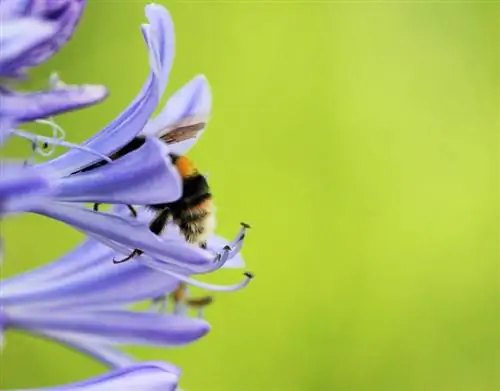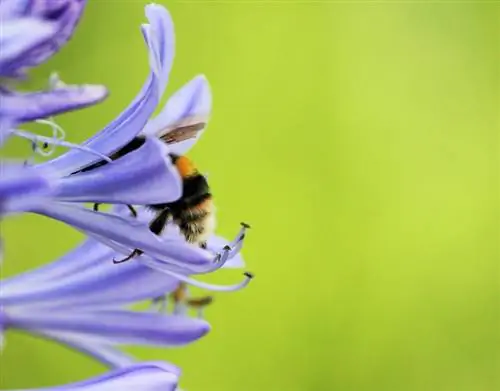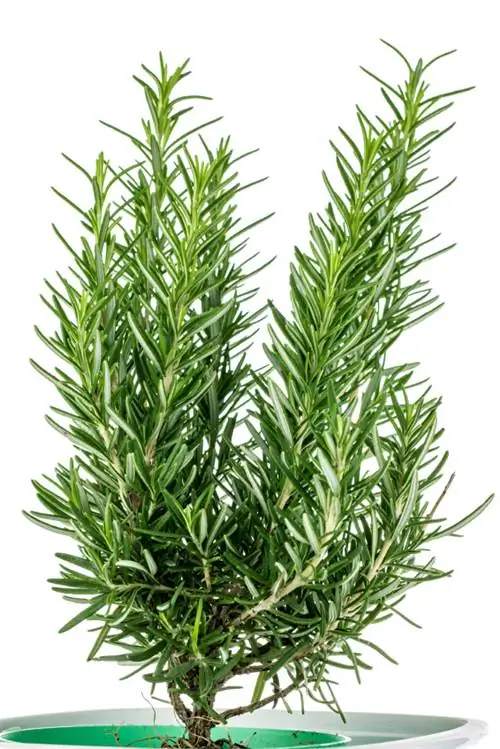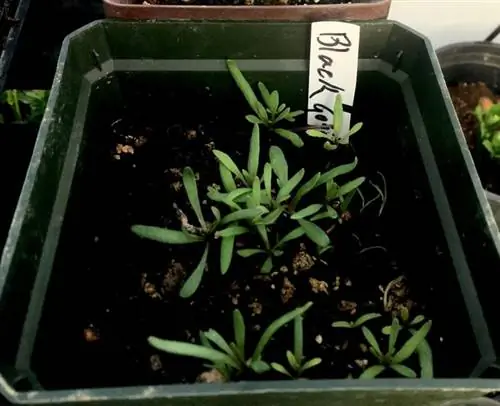- Author admin leonars@hobbygardeners.com.
- Public 2023-12-16 16:46.
- Last modified 2025-01-23 11:20.
The African lily is not hardy outdoors in Central Europe, but as a container plant in the right location it usually requires relatively little care. Propagating the flowering plant with the spherical inflorescences is not particularly complicated if you choose the right procedure.

How can you propagate the African lily?
The African lily can be propagated by seeds or rhizome division. Harvest seeds when fruit capsules are yellow and slightly open, then sow from February. Divide rhizomes in spring when repotting and place divided plants in new substrate.
Growing African lilies from seeds
At the end of the summer flowering period, the wilted inflorescences of the African lily are usually cut off relatively quickly for visual reasons. However, you must leave the plant's flowers for longer if you want to harvest specific seeds for propagation. The seeds are ripe as soon as the individual fruit capsules turn yellow and open slightly. The Agapanthus seeds can then be grown on the windowsill from February onwards when the temperatures are uniformly warm and there is sufficient moisture and then placed in individual pots outdoors at the end of April.
Advantages of propagation by rhizome division over sowing
After sowing African lily seeds, depending on the location and care, it can take up to four years until the young plants bloom for the first time. African lilies propagated by rhizome division rarely bloom in the first year, but flowers can often form on the specimens propagated in this way as early as the second year. Overall, the following factors speak for propagation through rhizome division:
- The cuttings obtained in this way are sown more quickly than seedlings
- African lilies propagated from tubers require less care than seedlings
- The African lily has to be divided every few years as a container plant due to its tuber growth
The right time for propagation
Wintering out the plants in spring is the optimal time to propagate the African lily by dividing tubers. In any case, it doesn't hurt to provide a well-draining, loose planting substrate and long-term fertilization with added compost when repotting the African lily.
Tips & Tricks
Since the African lily does not bloom again immediately when propagated by rhizome division, you should divide several specimens on an annual basis. In addition to growing artificial lilies, your garden will always have flowering plants.






